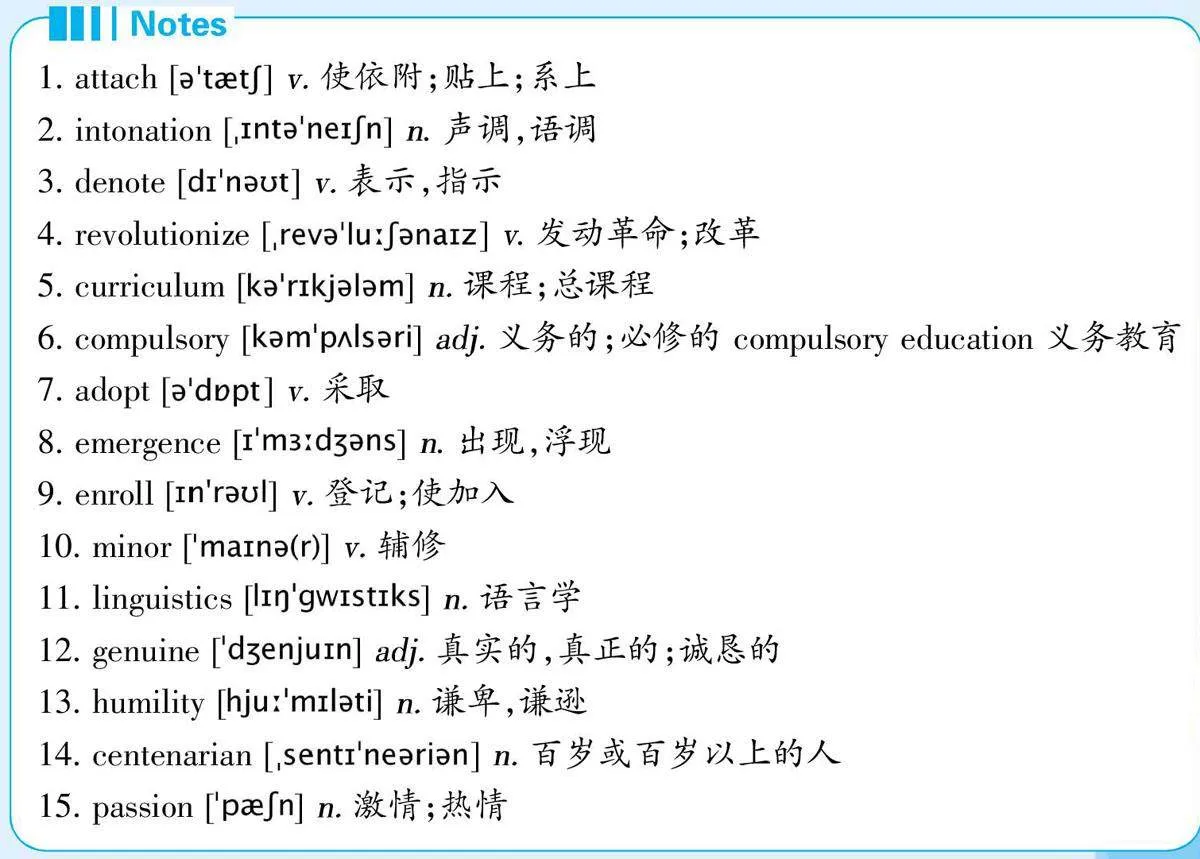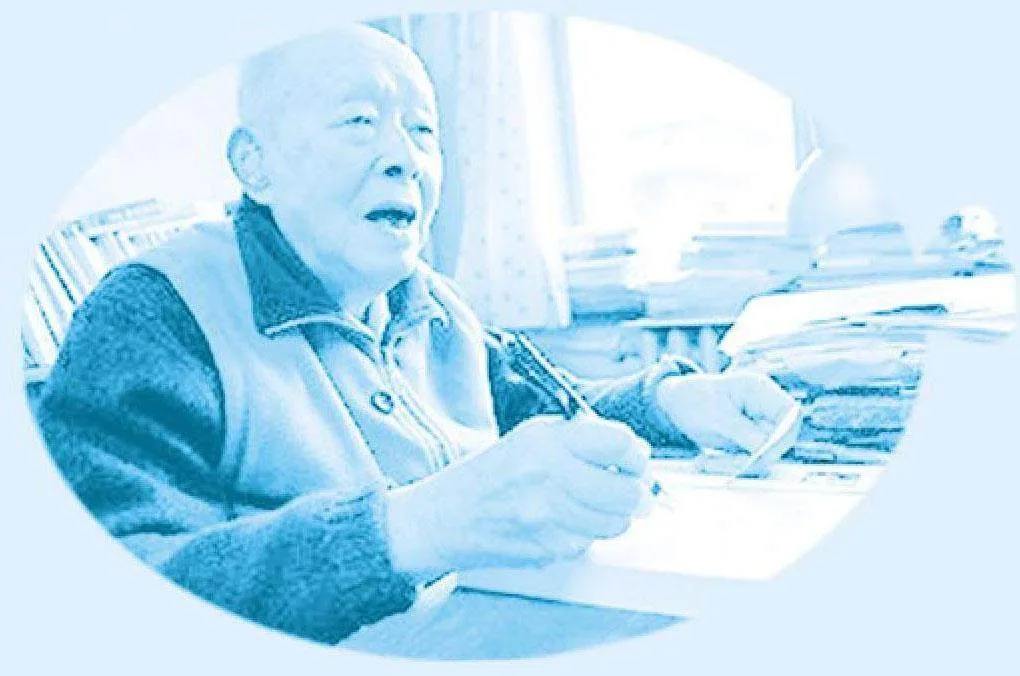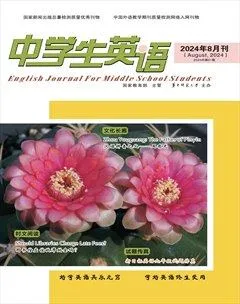Zhou Youguang:The Father of Pinyin汉语拼音之父——周有光


Pinyin, the method by which Chinese and foreigners learns Chinese,was designed in the late 1950’s by Zhou Youguang and his team of 20 inunder three years.
拼音是中国人和外国人学习汉语的一种方法,是由周有光和他的20人团队于20世纪50年代末在不到3 年的时间里创设出来的。
Pinyin works to attach1 the Chinese sound and intonations2 of acharacter to the character itself through a system of letters denoting3 thepronunciation.
拼音的工作是通过一套表示发音的字母系统将汉字的语音和语调与汉字本身联系起来。
The Chinese romanization system has revolutionized4 all facets ofcommunication in China, beginning in 1958 when it was put into thecurriculum5 of compulsory6 education across China as a method forteaching Mandarin. After a revised version of pinyin was adopted7 as theinternational standard in 1982, pinyin became very important to a solutionfor evolving communication technology: users would be able to fluentlytype characters into their phones and computers using a keyboard.
从1958年开始,汉语罗马化系统作为一种普通话教学方法被纳入全国义务教育课程中,它彻底改变了中国交际的方方面面。在1982 年修订版的拼音被采纳为国际标准之后,拼音对于不断发展的通信技术的解决方案变得至关重要:用户将能够使用键盘在手机和电脑中流利地键入字符。
By revolutionizing communication in China, pinyin has also had a majorimpact on China’s modern day emergence8 as a global power, or the“opensesame”effect, as Zhou put it.
通过改革中国的交流方式,拼音也对中国现代崛起成为世界大国产生了重大影响,也就是周有光所说的“芝麻开门”效应。
“Language is a key to learning and understanding, and pinyin gave moreChinese the ability to turn this key,”he said. “In the era of mobile phonesand globalization, we use pinyin to communicate with the world. Pinyin is likea kind of ‘open sesame’, opening up the doors. The system is a bridgebetween China and the rest of the world.”
“语言是学习和理解的一把钥匙,而拼音让更多的中国人有能力转动这把钥匙。”他说,“在手机和全球化的时代,我们用拼音与世界交流。拼音就像‘芝麻开门’,打开了大门。这个系统是中国与世界其他国家之间的桥梁。”
Zhou Youguang was born in 1906, and spent the greater part of his life asa writer. Throughout his life, he published 30 books, 10 of them beingavailable since the turn of the 20th century. In 1923, Zhou enrolled9 in China’sfirst Western -style university, St. John’s in Shanghai, where he majored ineconomics and minored10 in linguistics11. During the May 30th Movement inthe middle of the Republican period, he transferred to Guanghua Universityand then graduated in 1927. By this time, he was renowned as one of China’sbrightest young scholars. Zhou spent time in Japan as a foreign exchangestudent before moving to London, and then New York to work as a Wall Streetbanker. During his time in New York he built a friendship with AlbertEinstein, although he said those discussions had been lost in time.
周有光出生于1906 年,他一生的大部分时间都在写作。在他的一生中,他出版了30 本书,其中10 本是20 世纪初出版的。1923 年,周有光就读于中国第一所西式大学上海圣约翰大学,主修经济学,辅修语言学。民国中期五卅运动期间,他转入光华大学,于1927 年毕业。彼时,他被誉为中国最杰出的青年学者之一。周有光曾在日本做过交换生,之后前往伦敦,后来在纽约做过华尔街银行业者。在纽约期间,他与阿尔伯特·爱因斯坦建立了友谊,尽管他说那些讨论已经被时间遗忘了。
“Yes, I visited Einstein a couple of times,”Zhou had said matter-of-factly,but with the genuine12 humility13 of a Confucian scholar.“But I didn’t understandrelativity at all so we just chatted about everyday things.”
“是的,我拜访过爱因斯坦几次。”周有光带着儒家学者真正的谦逊实事求是地说,“但我根本不懂相对论,所以我们只是聊日常琐事。”
Later, Zhou Youguang continued to write and tried to understand China.One of his latest books Zhao When Dao Ji , was based on one of Confucius’ssayings: “He who fully realizes the truth in the morning may die without regretsin the evening.”
之后,周有光继续写作,努力了解中国。他最后出版的著作之一《朝闻道集》是取材于孔子的名言“朝闻道,夕死可矣”。
The centenarian14 scholar’s passion15 over the course of his life had beenlearning and helping others to learn, and for foreigners living in China, Zhou hada simple piece of wisdom: “Do something to help bridge understanding betweenChina’s ancient civilization and the modern world.”
这位百岁学者一生的热情在于学习和帮助他人学习,对于生活在中国的外国人,周有光有一种朴素的智慧:“做点什么,为中国古代文明和现代世界之间的理解架起一座桥梁。”
(英语原文选自:thechinese.org)

